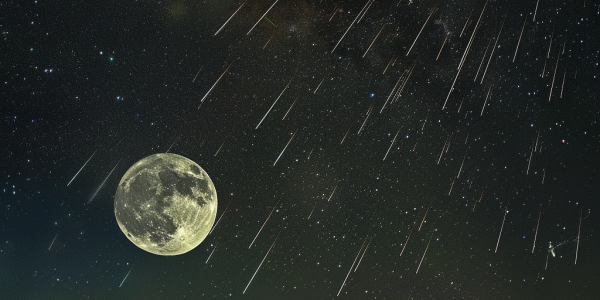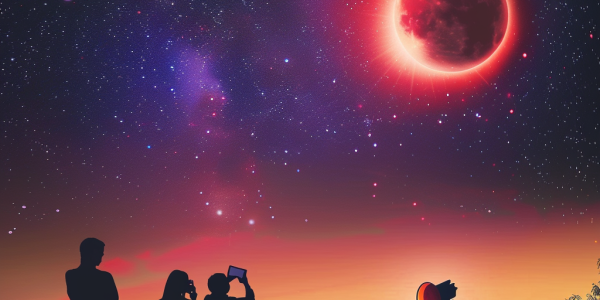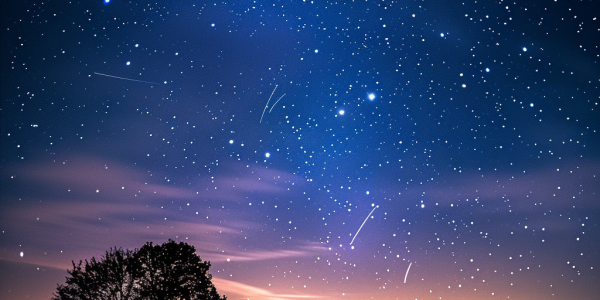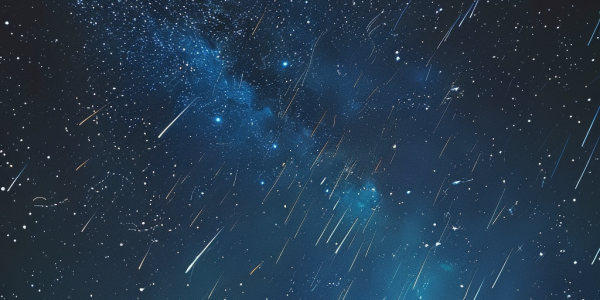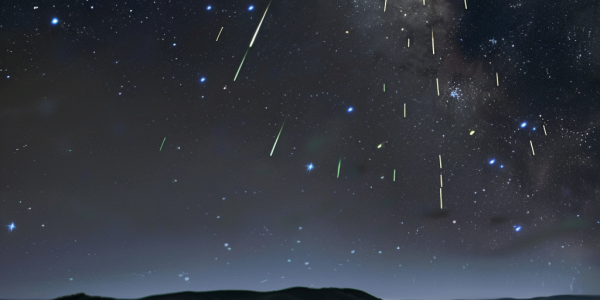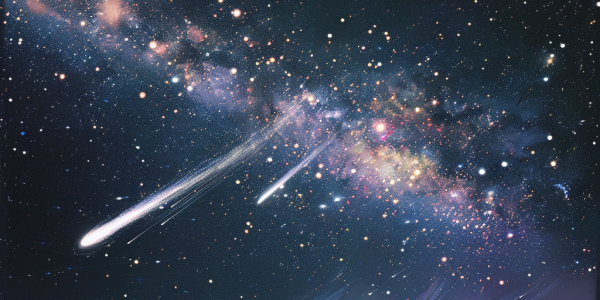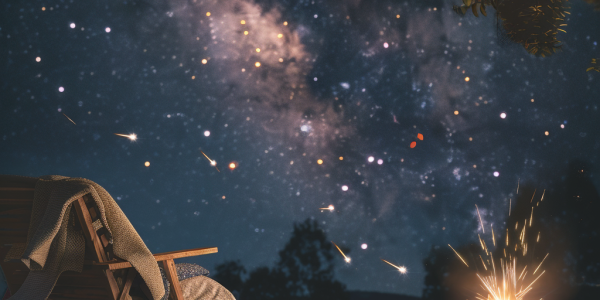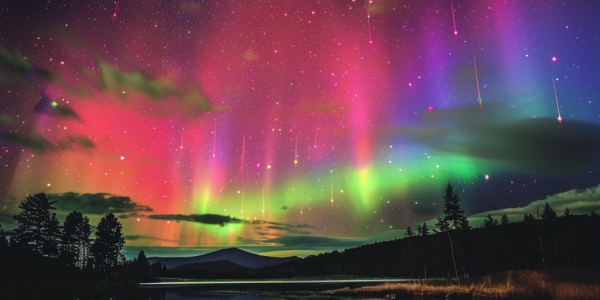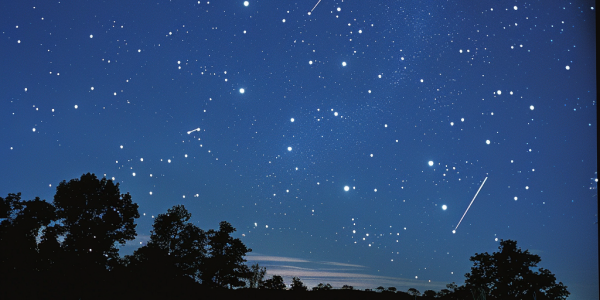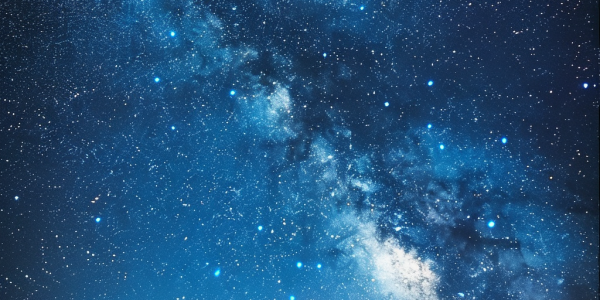Geminid Meteor Shower Sparks Lunar Impact Observations
Recent observations by astronomer Daichi Fujii reveal that the annual Geminid meteor shower may be impacting the Moon, with bright flashes captured on its surface. The Geminids, known for their vibrant display, peak around December 8, 2024, offering an exceptional stargazing experience. As experts confirm the alignment of these impacts with Geminid meteors, skywatchers are encouraged to find dark spots for optimal viewing. This year’s meteor shower promises to be a memorable cosmic event.
Eclipses to Captivate Skywatchers in 2025
Get ready for an astronomical spectacle in 2025! Skywatchers can look forward to two partial solar eclipses and two total lunar eclipses, with visibility across various regions worldwide. Mark your calendars for March 29 and September 21 for the solar eclipses, and don’t miss the total lunar eclipses on March 13-14 and September 7-8. Prepare to witness these captivating celestial events!
Residents in Indiana Witness Mysterious Flash and Boom Linked to Geminid Meteor Shower
Residents across Indiana were amazed by a sudden flash and loud boom early Tuesday, likely linked to the ongoing Geminid meteor shower. Eyewitnesses reported seeing a bright light around 4 a.m., sparking excitement for the peak of this celestial event, expected on December 13 and 14. Learn how to best observe the Geminids and experience the beauty of the night sky this holiday season.
Geminid Meteor Shower Set to Peak Next Week
The Geminid meteor shower, peaking on December 12-13, 2023, is set to dazzle stargazers with up to 120 meteors per hour. Known for its vibrant yellow and green meteors, this annual celestial event is caused by debris from asteroid 3200 Phaethon. For optimal viewing, find a dark location and lie back to enjoy the spectacular display lighting up the December night sky.
Prepare for the Leonids Meteor Shower: Peak Viewing on November 16-17, 2024
Get ready for the Leonids meteor shower, peaking on November 16-17, 2024. Known for their stunning shooting stars, these meteors travel at 44 miles per second and can be seen from both hemispheres. Despite a nearly full moon, find dark locations to enhance your viewing experience. Don’t miss this annual celestial spectacle!
Breakthrough Technique Enhances Early Detection of Hazardous Long-Period Comets
Astronomers have achieved a breakthrough in detecting potentially hazardous long-period comets (LPCs) using a novel technique that analyzes meteoroid trails. This method allows for early identification of ‘planet-killer’ comets, enhancing planetary defense strategies and offering crucial advance warnings. By studying the trails left by these comets, scientists can predict their paths years before they approach Earth, significantly improving our preparedness for potential cosmic threats.
Southern Taurid Meteor Shower Set to Dazzle Sky-Watchers
Get ready for the Southern Taurid meteor shower peaking this week! Known for its spectacular fireballs, this celestial event offers sky-watchers a chance to witness stunning meteors after midnight on early Tuesday. With favorable viewing conditions and the moon only 11% full, grab some hot cocoa and enjoy the beauty of the night sky. Don’t miss this awe-inspiring astronomical display!
Rare Celestial Event: Aurora Borealis Meets Perseid Meteor Shower
Stargazers experienced a rare celestial event on August 12, 2024, as the Aurora Borealis combined with the Perseid meteor shower, captivating viewers worldwide. This spectacular display, enhanced by a significant solar event, allowed the Northern Lights to be seen in regions typically devoid of such beauty. Discover the magic of this unforgettable night in our latest article.
Prepare for the Draconid Meteor Shower: A Celestial Event This October
Get ready for the Draconid meteor shower peaking on October 7-8, 2023. Ideal viewing conditions with a 27% illuminated moon make this a perfect opportunity for stargazers. Expect around 10 meteors per hour, best viewed shortly after sunset. Gather your friends and enjoy this celestial event!
Peak Meteor Showers: Southern Delta Aquarids, Alpha Capricornids, and Perseids Light Up the Night Sky
This week, stargazers can enjoy the peak of the Southern Delta Aquarids and Alpha Capricornids meteor showers, with the Perseids also approaching their mid-August peak. Ideal for both seasoned astronomers and casual observers, this meteor season offers spectacular celestial displays. Discover tips for optimal viewing and make the most of this exciting time for meteor watching.

